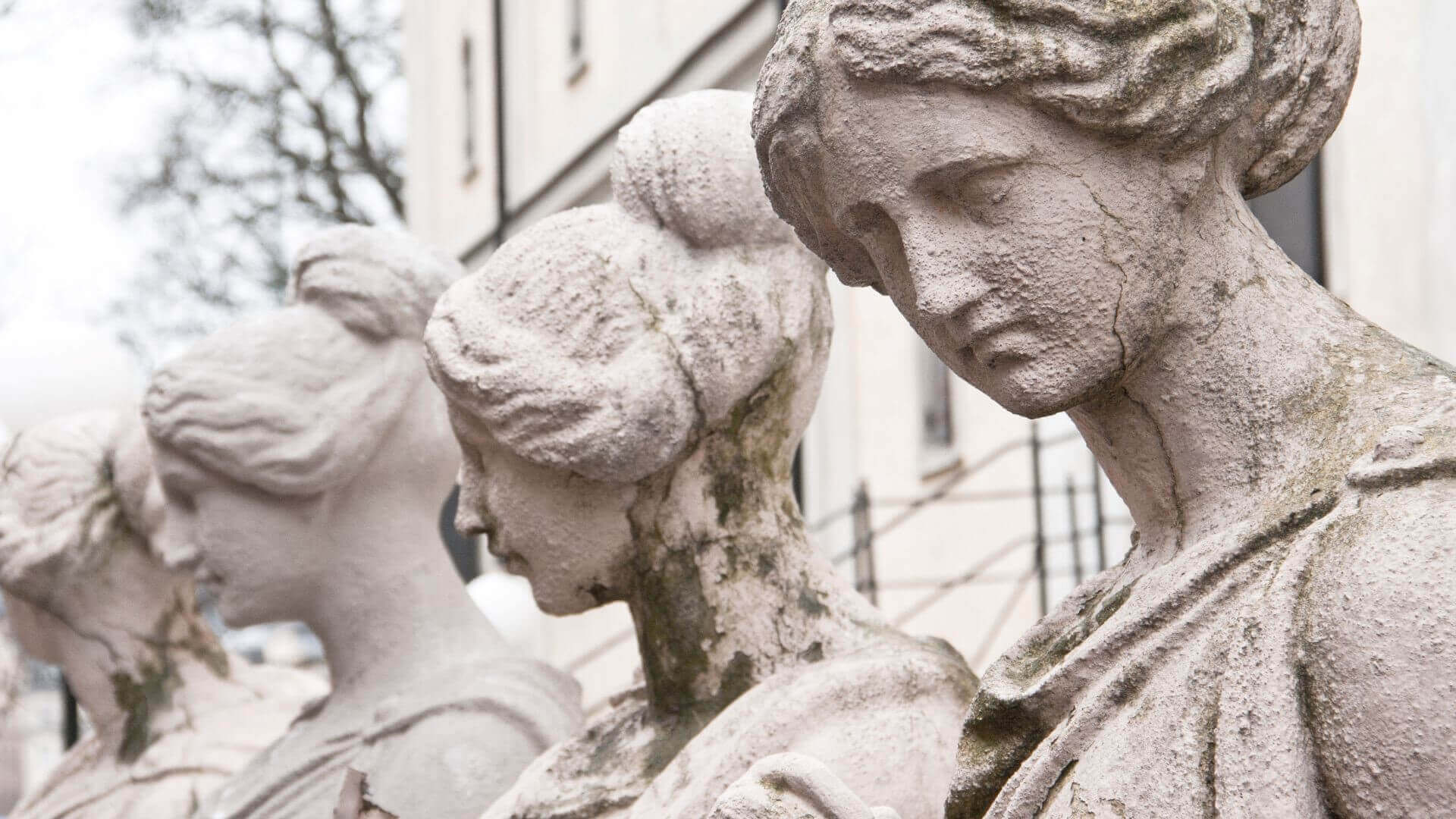Matriarch, Entrepreneur, Boss-Lady, Olympian, Mama, Empress, Grandma, Senator…the list is Endless! What do these buzz-words have in common? They reflect strong women who have profoundly affected history books and made their influence known. Women have founded cities, shaped nations, discovered radium and polonium, all while keeping households running efficiently (perhaps the toughest job of all!) Whether you are changing the world or keeping your world together, building a legacy takes hard work and careful planning to make it a lasting one. Let us honor these five women who moved mountains and raised ceilings.
1.) Miami, Florida: Julia Tuttle
The story of Miami’s founding mother is impressive, but it becomes astounding when you learn she started the city as a young widow who traveled alone to the Southern city from Cleveland and did it in 1891 – when women of her class were not even supposed to work for a living. She is believed to be the only female founder of a major American city.
It was just a patch of land on the Miami River, and Tuttle was just 43 when she moved there with her two young children. She had visited her parents at their Lemon City homestead a few years earlier and fell in love with the beauty of Biscayne Bay and the surrounding land. When her husband died a few years later, she sold their home and business and brought her two children to Miami. Tuttle is said to have told a friend, “It is the dream of my life to see this wilderness turned into a prosperous country.”
She made her dream come true, convincing 19th-century mogul Henry M. Flagler to bring his railroad to Miami. She opened the city’s first laundry, bakery, and dairy farm and built the first hotel as a bunkhouse for workers building the young city. Today, her memory lives on in the Julia Tuttle Causeway that crosses her beloved Biscayne Bay from Miami to Miami Beach.
2.) Warsaw, Poland: Marie Curie
Born in Warsaw in 1867, Nobel laureate Marie Curie is remembered proudly by her birth city. She lives on at the Marie Skłodowska-Curie Museum, which uses her full Polish name, as Curie did throughout her life. She added the surname of her husband, the French scientist Pierre Curie, but remained true to Polish heritage, even naming the element she discovered, polonium, after her homeland.
Curie made an enormous contribution to developing the theory of radioactivity and pioneered the use of radioactive isotopes to battle tissue growth, the bedrock of many modern-day cancer treatments. Tragically, the scientific apparatus on display ultimately doomed Curie, who died from radiation-related illness.
Curie has many “firsts” and “only’s” after her name: first woman to win a Nobel Prize, first person to win a Nobel twice, only person to win a Nobel in two different scientific fields, first woman to share a Nobel with her husband, first winner to share the prize with a son or daughter (her daughter, Irène Joliot-Curie, won the Nobel in chemistry in 1935), first woman to become a professor at the University of Paris. She forever changed the expectation for the women who came after her.
3.) Montgomery, Alabama: Rosa Parks
When she refused to give up her seat on a Montgomery bus in 1955, Rosa Parks took a stand against her city’s policy of racial discrimination on public transportation. She changed much more than Montgomery, helping to energize the national civil rights movement in America.
Parks was not the first Black person in Montgomery to be arrested for refusing to sit in the back of a public bus, but her case was the final spark that ignited the civil rights fire. It led to the Montgomery bus boycott, the African American community’s nearly year-long refusal to ride city buses until the policy was set aside.
Their fight worked. Parks remains one of the many heroes of the movement whose effects are still being felt.
4.) Luxor, Egypt: Hatshepsut
You have probably heard of Cleopatra, the legendary female ruler of Egypt. But she was not the first woman to rise to the rank of pharaoh. That distinction belongs to Hatshepsut, whose legacy still stands.
Hatshepsut was the daughter of Pharaoh Thutmose I and Queen Ahmose I. When Thutmose died, he was succeeded by her half-brother, Thutmose II; Hatshepsut and Thutmose married to keep the royal line pure. When her husband died, she was appointed regent to rule for Thutmose III, the son of another queen. She came to be seen as the dominant pharaoh.
Hatshepsut reigned for less than 20 years but in that time commissioned the obelisk at Karnak, a 343-ton marvel made of a single piece of pink marble. It is the second largest of the ancient Egyptian obelisks. Hatshepsut’s temple at Luxor features a relief depicting the god Anubis escorting Hatshepsut to his shrine.
Despite attempts to erase Hatshepsut from Egypt’s history by removing her name from her temples, the first female pharaoh is still very much part of ancient Egypt’s story.
5.) Beijing, China: Empress Cixi
One of China’s most powerful and influential women, Empress Cixi, left her mark on the architecture and politics of an ancient empire. In fact, you might say she was the architect of many of the political activities in the royal palace.
Cixi began her climb to power as a concubine of Emperor Xianfeng, a Qing Dynasty ruler from 1850 to 1861. She bore him a son who became emperor after Xiangfan’s death but was too young to rule on his own. She helped lead a coup against a group of regents who had been appointed before Xianfeng’s death. She became co-empress dowager with Xianfeng’s widow, and she began a series of shrewd moves, eventually becoming empress in her own right. She was both feared and admired.
Besides pulling powerful political strings, Cixi also renovated her residences in the Forbidden City and had the Summer Palace built for her retirement. She ordered the restoration of the Marble Boat, an extravagant imperial showpiece, using funds that had been designated for the royal navy. The Marble Boat is made of wood painted to look like marble, which says a lot of Cixi’s ability to maintain appearances.
A Basket of Legal Protection
Who says you cannot have it all? Whether you have amassed a small fortune or a cozy studio apartment, OC Estate & Elder Law can help you and your loved ones keep what you do have and pass it along to your loved ones. We can assist you with the preparation of your Last Will and Testament, Power of Attorney, Health Care Proxy, and a Trust. If you already have an estate plan but have not updated it since your last major life event, such as marriage, divorce, birth or death in the family, now is the time to contact us for a free consultation at (954) 251-0332 or info@ocestatelawyers.com. We speak English, Spanish, and Russian.
















